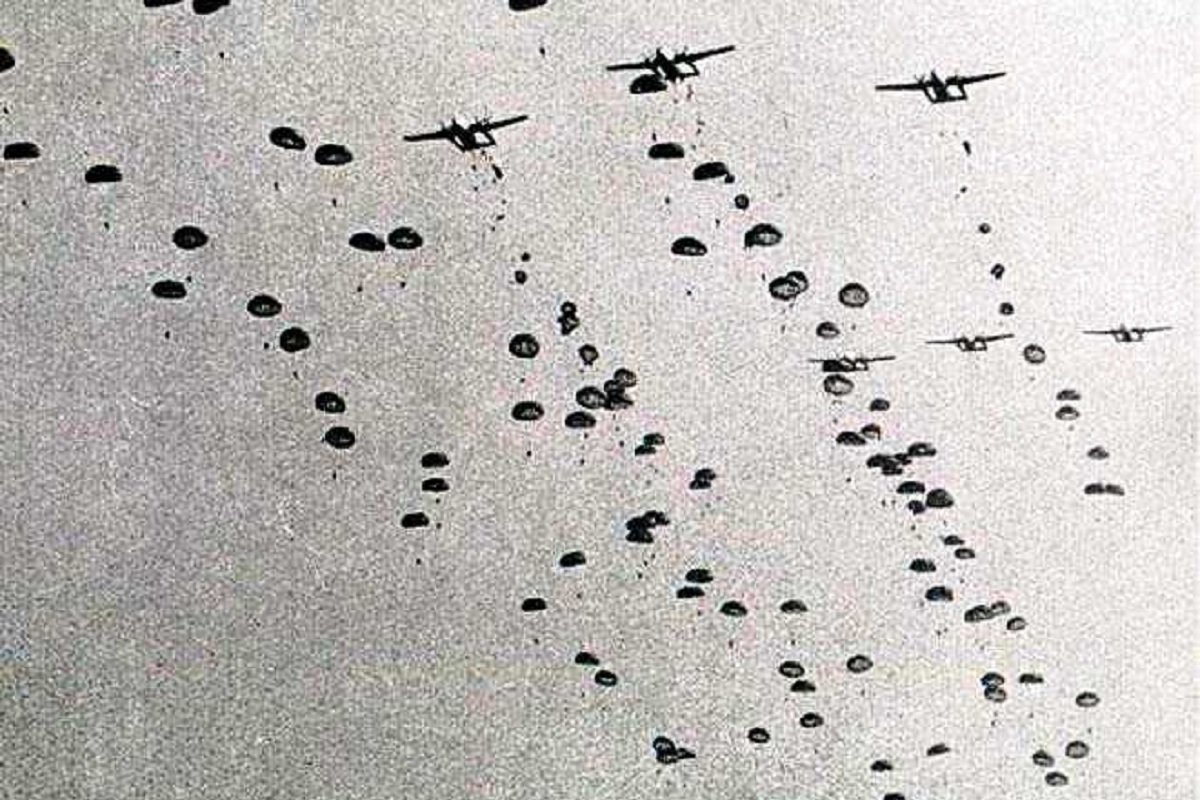With ‘Race to Dacca’ gaining momentum, the twilight sky over East Pakistan on 11 December 1971 evening was dotted with parachutes as the Indian Army launched an airborne assault, carried out by its 2 PARA (Airborne), dropped behind enemy lines for special operations.
The Indian forces used subterfuge to deceive the enemy and capture Poongli Bridge in the eastern sector by night. Prior to Vijay Diwas on 16 December, the Eastern Command of Indian Army recalled the operation in the Eastern Front where the 2 PARA (Airborne) battalions were airlifted from Dum Dum and Kalaikunda air bases and parachuted into East Pakistan.
Advertisement
The mission brief was to first establish a link with the Maratha Light Infantry who were on the ground preparing to advance towards Dhaka. An IAF fleet of six An-12s, 20 C-119 ‘Packets’ and 22 Dakota aircraft, taking off from airbases in and around Kolkata, para-dropped a battalion group of 800 infantrymen and equipment including 12 jeeps, at Tangail. These para-dropped forces were the first troops to enter Dhaka.
“This could be described as one of the earliest clandestine operations that testify for Parachute Regiment’s capability amidst all odds. The Poongli Bridge had to be captured to stop the 93rd Pakistani Brigade, retreating from the north towards Dhaka in the east. The challenge was to drop the paratroopers while keeping the adversary in the dark. Daylight was fading as the paratroopers were airdropped. Dummies were simultaneously parachuted into enemy territory to mask the real drop-locations to deceive the enemy, leaving them confused” confirmed Army sources.
This operation also witnessed the gallantry of Lt. Col. Kulwant Singh Pannu, commanding a 2 PARA battalion. Military archive revealed, on 11 December his battalion was airdropped near Tangail with the task of cutting enemy routes of retreat which necessitated capture of enemy positions on Poongli Bridge.
Since the airdrop was widely dispersed, Lt Col. Pannu moved from one location to another, dodging small arms fire, to collect his platoons. His skill and leadership led to the capture of the bridge while the adversary’s counter-attacks were repulsed with lethal force, leaving heavy casualties among Pakistani army. The courageous act earned him a Maha Vir Chakra in 1972 on Republic Day.











